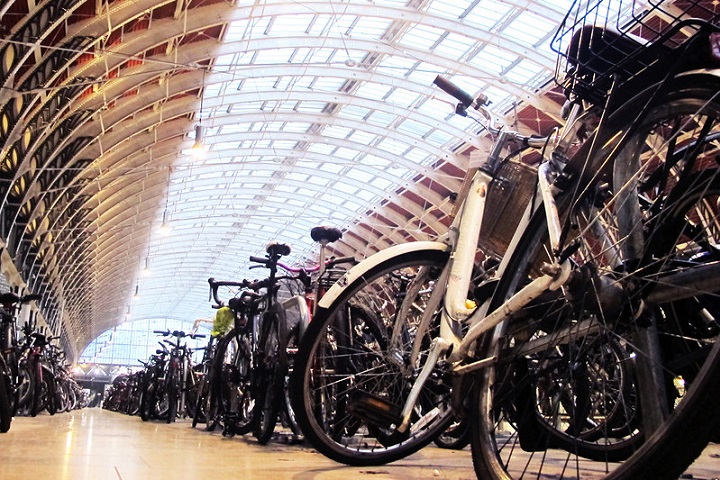
Image: DfT
The Covid-19 pandemic has had a ‘substantial and potentially sustainable’ impact on active travel, the Government has concluded.
New figures published on 8 October show between May and July 2020, 39% of people reported to walk more and 38% reported to cycle more than before the outbreak of the pandemic.
Looking forward, 94% thought it likely that they would continue to cycle and walk more once travel restrictions were removed.
These figures will be welcome news for transport secretary Grant Shapps, who has continued to repeat the Government’s desire for active travel to play a key role in the UK’s transition out of Covid-19.
In May, Government announced a £2bn funding package – the first stage of which was £250m for emergency safety measures, such as pop-up bike lanes, wider pavements and cycle and bus-only streets.
Two months later, the Government set out a ‘comprehensive, long term vision’ to embed the benefits of walking and cycling into daily lives – with a pledge to build ‘thousands of miles’ of protected cycle routes in towns and cities
The new data is in line with that published in Scotland, which suggests the number of people cycling rose by 43% between March and August.
Lack of confidence in public transport
The survey questioned public attitudes on travel and transport during the COVID-19 pandemic.
It found that people have far greater concerns about using public transport than cycling or walking.
In total, 89% of respondents were concerned about using the train, with 85% feeling the same about buses.
Conversely, 17% were concerned about cycling and 24% walking.
The lack of confidence in the use of public transport looks likely to remain after travel restrictions and social distancing measures have been removed.
Nearly two-thirds of respondents say it is very likely (38%) or fairly likely (27%) that they will avoid using public transport if it is crowded.
Comment on this story